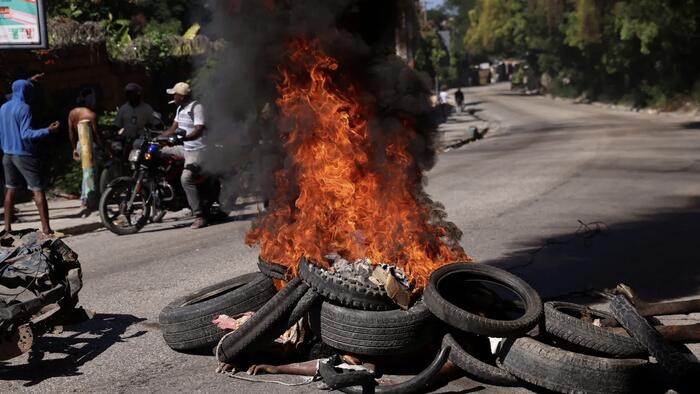The recent brutal massacre in Haiti, ordered by Monel “Mikano” Felix, leader of the Wharf Jeremie gang, represents a tragic escalation in the country’s cycle of violence and chaos. This latest horrific event resulted in the deaths of at least 184 individuals, primarily elderly residents accused of using sorcery to harm Felix’s son, who suffers from a severe illness. Following the instructions of a Voodoo priest, Felix directed his gang to target the elderly residents in the densely populated slum of Cité Soleil, where conditions are dire, marked by filth and a lack of basic sanitation. As Interim Prime Minister Alix Didier Fils-Aimé condemned the attack as a “barbaric act of unbearable cruelty,” it became starkly clear that life for many Haitians has devolved into a nightmare, dominated by gang violence and lawlessness.
The gang’s attack saw members systematically search for elderly individuals within the community, unleashing horrific violence with machetes, knives, and firearms. Those who defended the elderly residents were also killed, and the aftermath was gruesome; bodies were publicly mutilated and set on fire, serving as a chilling reminder of the gang’s power and ruthlessness. Reports indicate that Felix lost his son during the massacre, rendering the scale of violence even more tragic. This incident has been a stark representation of the extreme measures that gangs are willing to take in response to perceived threats, displaying a complete disregard for human life and a descent into barbarism.
The Haitian government’s response to this atrocity has been called into question, especially given the state’s failure to maintain order amid rampant gang activity that has claimed the lives of over 5,000 individuals in just the current year. With police forces struggling amid desertions and discord, promises issued on social media from government officials regarding justice and eliminating the criminals seem insufficient and unconvincing. Many Haitians doubt the government’s capability to provide safety or uphold any form of law and order against such a powerful and entrenched gang infrastructure.
International efforts to restore stability have also faltered. Although a Kenya-led multinational police force was deployed with the intent to assist Haitian authorities in reclaiming territory from gangs, the mission has fallen short due to a lack of resources and personnel. Out of the approximately 2,500 officers promised, only about 400 have arrived, highlighting a severe gap in required support. As the situation deteriorates, Haiti remains trapped in a cycle of violence and neglect, exacerbating the hardships faced by its citizens, many of whom are fleeing for their lives.
The roots of Haiti’s agony can be traced back to the assassination of President Jovenel Moise in 2021, an event that has been pivotal in the rise of gang influence throughout the capital. Since that time, gangs have effectively seized control over vast areas, engaging in widespread extortion, kidnapping, and murder. Neighborhoods deemed as adversaries are subjected to mass reprisals, such as the previously mentioned October massacre that left at least 70 individuals dead. This environment of fear has resulted in more than 700,000 Haitians being displaced from their homes, with many experiencing hunger and insecurity as gangs continue to dominate food and fuel distribution.
Moreover, this most recent massacre is not an isolated incident; it underscores a chilling pattern of violence linked to superstition and allegations of witchcraft. Felix’s gang had previously been implicated in the deaths of elderly women suspected of practicing sorcery, showing a continuation of this brutal logic of vengeance. As Haiti grapples with this cycle of violence driven by fear and superstition, the urgent need for effective governance, law enforcement, and international support becomes ever more pressing. Without these fundamental changes, the outlook for peace and stability in Haiti remains grim, leaving many to question how far the nation can deteriorate before reclaiming the hope of a better future.

